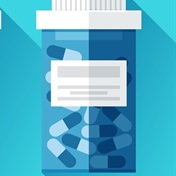Kids who get lots of antibiotics from their doctors are more likely to harbour the MRSA superbug, although it's still rare, a new study of British youngsters has found
While that doesn't prove the drugs are to blame for the antibiotic-resistant bacterium, it would make biological sense, researchers say.
"This just provides more evidence to support redoubling our efforts to decrease antibiotic use," Dr Daniel J. Diekema, who was not involved in the new work, said.
It is estimated that in 2005, MRSA caused severe infections in nearly 95,000 Americans and killed more than 18,500 of them.
Infections caught in hospitals declining
While infections caught in hospitals have been declining in recent years, there is less certainty about community-acquired MRSA infections.
"It remains a major public health problem, but the dramatic increase that we saw during the last decade seems to have levelled off in many areas and may be decreasing in some," said Dr Diekema, an expert in infectious diseases at the University of Iowa in Iowa City.
To get a better idea about how MRSA infections arise outside of hospitals, Canadian researchers looked at data from more than 400 doctors' offices in the UK.
They'd already shown that adults with several antibiotic prescriptions were more likely to harbour MRSA later on, so this time they focused on kids who'd gotten the diagnosis between 1994 and 2007.
Antibiotics before diagnosis results in more infections
There were 4.5 MRSA cases per 100,000 children every year in the UK, although it wasn't clear from the data whether the children had active infections or just carried the bacteria on their skin.
Of 297 children who tested positive for MRSA, 53% had been prescribed at least one antibiotic between 30 and 180 days before the diagnosis (the last 30 days were excluded to make sure the drug hadn't been used to treat MRSA).
By contrast, only 14% of more than 9,000 kids who'd visited the same doctors but didn't have MRSA had recently been taking antibiotics.
After adjusting for differences between the two groups that amounted to a three-fold difference in the risk of harbouring MRSA.
MRSA development to generate more research
And the more antibiotics the children had been given, the more likely they were to be carrying the resistant bug. Those who got four or more prescriptions, for instance, had 18 times the risk of MRSA.
On the other hand, nearly half of the children who had the bug hadn't received any antibiotics in the half year before their diagnosis, the Canadian team reports in the Archives of Paediatrics & Adolescent Medicine.
"This is an intriguing observation that we expect will generate some research into the mechanism of MRSA development," lead author Samy Suissa, of McGill University in Montreal, said. (Reuters Health, August 2011)
Read more:




 Publications
Publications
 Partners
Partners










